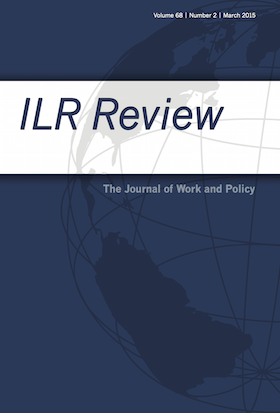
Firm Wage Premia, Industrial Relations, and Rent Sharing in Germany
This paper investigates the influence of industrial relations on firm wage premia in Germany. OLS regressions for the firm effects from a two-way fixed effects decomposition of workers’ wages by Card, Heining, and Kline (2013) document that average premia are larger in firms bound by collective agreements and in firms with a works council, holding constant firm performance. RIF regressions show that premia are less dispersed among covered firms but more dispersed among firms with a works council. Hence, deunionisation is the only among the suspects investigated that contributes to explaining the marked rise in the premia dispersion over time.






